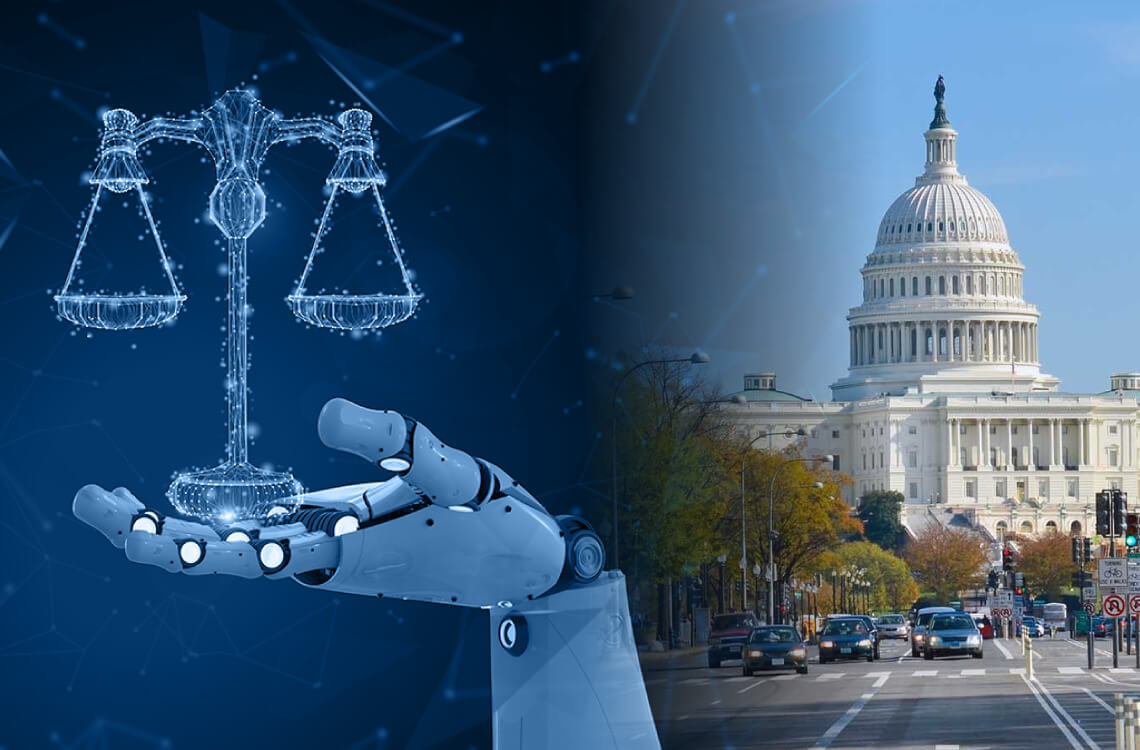In the buzzing corridors of Washington, the debate over the regulation of artificial intelligence (AI) is beginning to crest.
As AI technologies proliferate, U.S. lawmakers are wrestling with how to create a framework of guardrails for this nascent field, but it’s clear that consensus is far from imminent.
Washington balancing safety and innovation
From the Capitol to Silicon Valley, varying opinions are being voiced regarding how AI should be regulated. Some lawmakers are advocating for a focus on high-risk AI applications, such as those used in the medical and financial sectors.
This ‘risk-based approach’, supported by business community stalwarts like IBM and the U.S. Chamber of Commerce, would only regulate AI applications that pose significant risks to people’s lives or livelihoods.
Others are pushing for a broader remit, arguing for regulations that ensure AI isn’t used to infringe upon civil rights or perpetuate discrimination.
The crux of this debate hinges on whether regulation should target AI developers, like OpenAI, the startup behind the ChatGPT phenomenon, or the companies that deploy these AI systems to interact with consumers.
The rise of generative AI, which uses data to generate new content, is fueling the urgency for regulation. The popularity of such technology has not only attracted the attention of tech enthusiasts but also raised concerns about potential misuse, such as exam cheating, misinformation, and novel scams.
This has resulted in a cascade of meetings, culminating in a recent rendezvous at the White House with the CEOs of OpenAI, Microsoft Corp, and Alphabet Inc. Congress, too, has been spurred into action, with staff across the House and the Senate striving to get to grips with this fast-evolving technology.
A values-based approach
The U.S. regulatory debate extends beyond the question of risk. Democratic Senator Michael Bennet advocates for a ‘values-based approach’ to regulation, highlighting the need to prioritize privacy, civil liberties, and rights.
Bennet has proposed a bill calling for the creation of a government AI task force and has voiced concerns that risk-based regulations may be too inflexible to catch subtle dangers.
A prime example is the potential misuse of AI in content recommendation systems, which can inadvertently promote harmful ideologies.
Furthermore, Bennet and other lawmakers have expressed concern about AI being used to discriminate, perhaps in the allocation of low-interest mortgages.
At OpenAI, discussions have considered the possibility of broader oversight. OpenAI research scientist Cullen O’Keefe proposed the creation of an agency that would require companies to obtain licenses before training powerful AI models or operating data centers.
This hypothetical agency, dubbed the Office for AI Safety and Infrastructure Security (OASIS), could be the vanguard of AI regulation.
Despite the multitude of voices, the road to consensus remains steep. The looming Presidential election and other pressing issues like raising the debt ceiling add to the complexity of the situation.
As the U.S. government navigates through uncertain times, the global community eagerly anticipates the initial actions towards implementing comprehensive and ethical regulations for artificial intelligence, ensuring its safe and fair integration into society.





